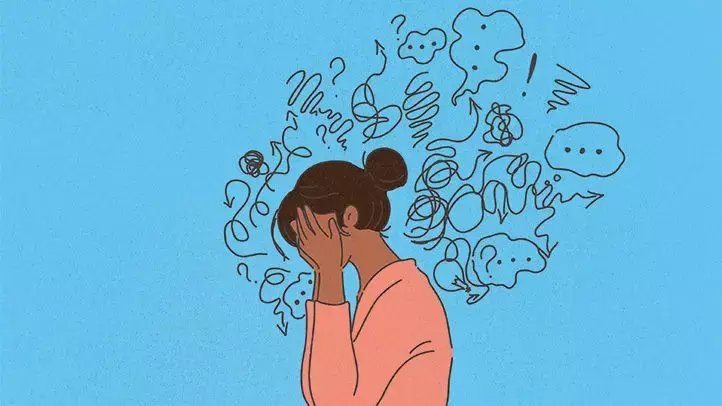- Home
- Medical news & Guidelines
- Anesthesiology
- Cardiology and CTVS
- Critical Care
- Dentistry
- Dermatology
- Diabetes and Endocrinology
- ENT
- Gastroenterology
- Medicine
- Nephrology
- Neurology
- Obstretics-Gynaecology
- Oncology
- Ophthalmology
- Orthopaedics
- Pediatrics-Neonatology
- Psychiatry
- Pulmonology
- Radiology
- Surgery
- Urology
- Laboratory Medicine
- Diet
- Nursing
- Paramedical
- Physiotherapy
- Health news
- Fact Check
- Bone Health Fact Check
- Brain Health Fact Check
- Cancer Related Fact Check
- Child Care Fact Check
- Dental and oral health fact check
- Diabetes and metabolic health fact check
- Diet and Nutrition Fact Check
- Eye and ENT Care Fact Check
- Fitness fact check
- Gut health fact check
- Heart health fact check
- Kidney health fact check
- Medical education fact check
- Men's health fact check
- Respiratory fact check
- Skin and hair care fact check
- Vaccine and Immunization fact check
- Women's health fact check
- AYUSH
- State News
- Andaman and Nicobar Islands
- Andhra Pradesh
- Arunachal Pradesh
- Assam
- Bihar
- Chandigarh
- Chattisgarh
- Dadra and Nagar Haveli
- Daman and Diu
- Delhi
- Goa
- Gujarat
- Haryana
- Himachal Pradesh
- Jammu & Kashmir
- Jharkhand
- Karnataka
- Kerala
- Ladakh
- Lakshadweep
- Madhya Pradesh
- Maharashtra
- Manipur
- Meghalaya
- Mizoram
- Nagaland
- Odisha
- Puducherry
- Punjab
- Rajasthan
- Sikkim
- Tamil Nadu
- Telangana
- Tripura
- Uttar Pradesh
- Uttrakhand
- West Bengal
- Medical Education
- Industry
Intravenous ketamine and intranasal esketamine can help improve symptoms of depression: Study

Intravenous ketamine and intranasal esketamine can help improve symptoms of depression among adults, as per a recent study published in the JAMA Psychiatry.
Although intravenous racemic ketamine has rapid antidepressant properties, it is not approved for depression treatment. However, the US Food and Drug Administration has approved intranasal esketamine for treatment-resistant depression. Correia-Melo et al. treated 63 participants with intravenous ketamine or esketamine and observed that esketamine was noninferior to ketamine. A recent meta-analysis suggested that intravenous ketamine was more effective,3 but the only head-to-head trial included was from Correia-Melo et al., rendering interpretation difficult. To our knowledge, no multidose, head-to-head comparisons of these treatments have been reported.
"The most important finding of our study is that both esketamine and [intravenous] ketamine can help alleviate symptoms in patients suffering from treatment-resistant depression, as long as they are provided in an evidence-based manner and with rigorous clinical standards," Sina Nikayin, MD, assistant professor of psychology at Yale University School of Medicine, told Healio.
Nikayin and colleagues reviewed retrospective data for all Yale Interventional Psychiatry Service patients who received IV ketamine or intranasal esketamine from September 2016 through April 2021.
Of the 210 patients included in the analysis, 126 (61.4%) received IV ketamine, and 81 received intranasal esketamine.
Favouring IV ketamine, the estimated group difference in the Montgomery-Asberg Depression Rating Scale (MADRS) score by treatment end was 2.15 (95% CI, –0.06 to 4.37). Group differences in Quick Inventory of Depressive Symptomatology-Self Report (QIDS-SR) scores after full treatment also favored ketamine (1.59; 95% CI, 0.24-2.94).
After six full treatments, differences in MADRS scores (2.49; 95% CI, 0.01-4.98) and QIDS-SF scores (1.64; 95% CI, 0.08-3.19) favored ketamine. "The findings suggest there might be some differences between these treatments, which require further studies to clarify," Nikayin said. "These studies, in turn, can provide us with the knowledge to better fine-tune our treatment methods and choose the most appropriate treatment modality for each individual patient."
Reference:
Evaluation of the Trajectory of Depression Severity With Ketamine and Esketamine Treatment in a Clinical Setting by Sina Nikayin et al. published in the JAMA Psychiatry
doi:10.1001/jamapsychiatry.2022.1074
Keywords:
Evaluation, Trajectory, Depression, Severity, Ketamine, Esketamine, Treatment, Clinical Setting, Sina Nikayin, Taeho Greg Rhee, Maria Elena Cunningham, Christina A. de Fontnouvelle, Robert B. Ostroff, Gerard Sanacora, Samuel T. Wilkinson, JAMA Psychiatry
Dr. Shravani Dali has completed her BDS from Pravara institute of medical sciences, loni. Following which she extensively worked in the healthcare sector for 2+ years. She has been actively involved in writing blogs in field of health and wellness. Currently she is pursuing her Masters of public health-health administration from Tata institute of social sciences. She can be contacted at editorial@medicaldialogues.in.
Dr Kamal Kant Kohli-MBBS, DTCD- a chest specialist with more than 30 years of practice and a flair for writing clinical articles, Dr Kamal Kant Kohli joined Medical Dialogues as a Chief Editor of Medical News. Besides writing articles, as an editor, he proofreads and verifies all the medical content published on Medical Dialogues including those coming from journals, studies,medical conferences,guidelines etc. Email: drkohli@medicaldialogues.in. Contact no. 011-43720751


